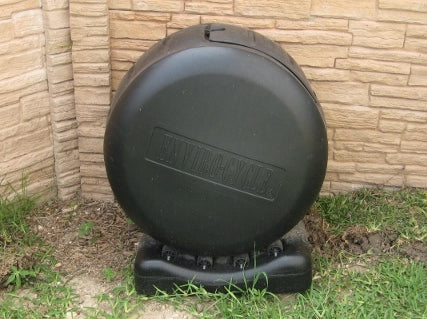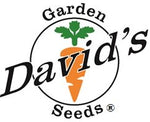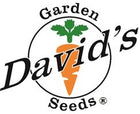How To Make Compost For Your Vegetable Garden

You can make compost for your vegetable garden from scraps in your kitchen. Compost will add much-needed nutrients to the soil to help your vegetables grow. You can purchase it, but why would you when you can use the throw-away food that you have in your kitchen each day. Compost makes your soil more absorbent, so it will hold water better. That means you will need to water your garden less.
Coffee grounds and coffee filters, fruit and vegetable peels like potato peels, apple peels, onion skins, the parts of celery lettuce, carrots, and cabbage that you won't eat, egg shells, apple cores, banana peels, melon rinds and anything that does not have grease in it will work. Cardboard and paper towels will also work. The black and white portion of newspapers can also be composted.
When using a counter top composter, you will want to line with a bio-degradable plastic bag. When emptying just pull the bag out and toss it in the compost bin. Make sure you do this at least every two days or the bags will bust since it will start to degrade as soon as you put scrapes in it.

I was in charge of collecting scraps from the kitchen, dumping them into the drum, adding more dirt, and stirring it all up. We would do this year-round and by April, when the danger of frost had passed in New York State, we would add the compost to our veggie garden and grow wonderful tomatoes and cucumbers.
Get some sort of a large bin and put it outside in the backyard. Make sure it has a lid to keep bugs and varmints out. Put a few inches of dirt at the bottom and add some food scraps. Then cover the scraps with a little dirt. Each time you add food, put a little dirt on it to cover it. After a few days, stir it with a stick before adding more scraps and dirt. After a while, the food all decays and the compost is ready to be added to the garden soil. Add the compost in to your soil and mix it in good with a shovel before planting your vegetables.
It is so incredibly easy to make compost for your vegetable garden. If an eight-year-old girl could do it back then, you can do it now. Just make sure not to use any meat, dairy, rice, or pasta to avoid fats in your compost and to avoid rats being in your backyard.
I keep a large bowl on my counter each day and I put all of my scraps in it throughout the day while I cook. I add my egg shells and coffee grounds from breakfast. Then pepper cores, cucumber peels, carrot peels, celery stems, broccoli and cauliflower stems, lettuce stems, and any other veggie parts that are not usable. Each evening after dinner, I dump the bowl into my compost bin, wash the bowl, and it is ready for use the next morning. No bad smells, no bacteria.
Update
We now keep a red pottery compost bin with a lid (pictured above) on our kitchen counter for scraps. It is important to remember to dump it each day or you might get fruit flies. I speak from experience!
______________________________________________________________________
If you would like some worms for your garden, we recommend getting them from Uncle Jim's Worm Farm.

Outdoor Composting Bin to store your kitchen scaps in. Mix it with a bit of dirt and turn it each time you add scraps.
How We Make Compost
We have two large compost bins that are shaped like giant wheels on rollers. You dump in your scraps and give it a spin to mix it all in with the dirt and other stuff in there. They make it easy to do and they look nice as well. We have to turn this by hand. The more we turn it the faster the compost gets done.
Good luck as you make compost for your vegetable garden!
When your mix looks like rich, dark, dirt then it is ready. The temperature in your compost should be at least 120 degrees. This means that everything is working nicely together and you have the right combination of ingredients.
You might want to add some fish fertilizer to help speed along the composting.
When your compost is ready you will want to do a 25/75% mix with soil. Do not use straight compost or you will burn your plants up.











How do you keep fire ants out of the compost?
Leave a comment